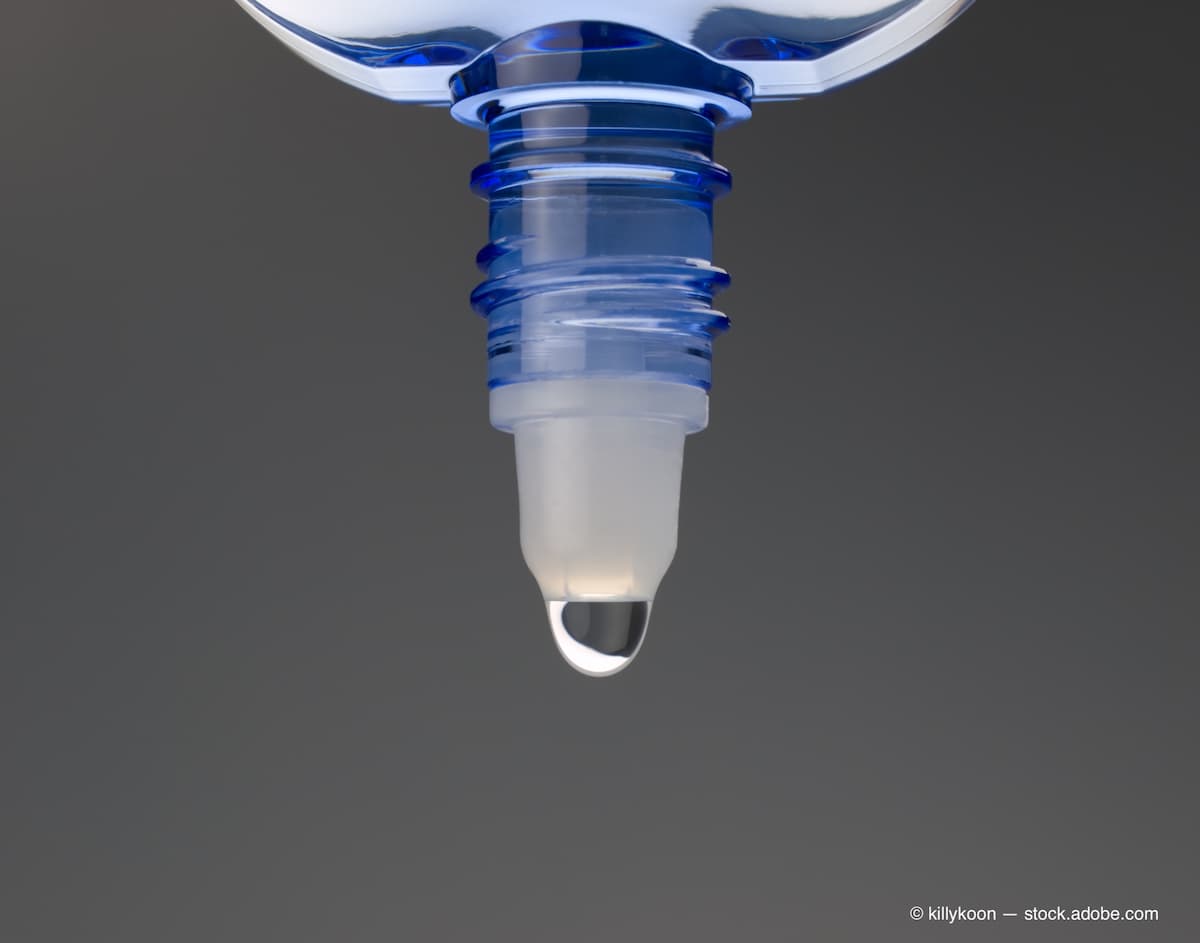FDA waves red flag over eye drops for potential risk of eye infection
Patients who have signs or symptoms of an eye infection after using these products should talk to their health care provider or seek medical care immediately.
(Adobe Stock / killykoon)

The Harvard Drug Group and Cardinal Health have both initiated voluntary recalls for the affected Leader and Rugby branded drops supplied from Velocity Pharma.1,2 These recalls come on the heels of the recent FDA urge to consumers to avoid the purchase of and to stop using 26 over-the-counter eye drop products due to the potential risk of eye infections that could result in partial vision loss or blindness.
Three reports of adverse events, including reports of blurred vision, vision loss, and burning eyes, have been reported.1
According to a news release on the FDA alert,3 patients who have signs or symptoms of an eye infection after using these products should talk to their health care provider or seek medical care immediately.
These products are marketed under the following brands:
- CVS Health
- Leader (Cardinal Health)
- Rugby (Harvard Drug Group)
- Rite Aid
- Target Up&Up
- Velocity Pharma
The FDA warned that the products are intended to be sterile and noted that ophthalmic drug products pose a potential heightened risk of harm to users because drugs applied to the eyes bypass some of the body’s natural defenses.
According to the news release, the FDA urged the manufacturer of these products recall all lots on October 25, 2023, after agency investigators found insanitary conditions in the manufacturing facility and positive bacterial test results from environmental sampling of critical drug production areas in the facility.
Moreover, FDA also suggests that consumers properly discard these products.
CVS, Rite Aid and Target are removing the products from their store shelves and websites. Products branded as Leader, Rugby and Velocity may still be available to purchase in stores and online and should not be purchased, according to the FDA’s news release.
According to the news release, the FDA has not received any adverse event reports of eye infection associated with these products at this time. FDA encourages health care professionals and patients to report adverse events or quality problems with any medicine to FDA’s MedWatch Adverse Event Reporting program:
- Complete and submit the report online at Medwatch; or
- Download and complete the form, then submit it via fax at 1-800-FDA-0178.
Earlier this year, the Dry Eye Foundation issued a warning against the use of certain eye drops marketed for use in the United States.
From ingredients that should not be included to ingredients that should be but are not, and improper storage and manufacturing, Sandra Brown, MD, Dry Eye Foundation board member and medical advisor, noted April 2023. The organization has been sounding the alarm since the beginning of 2022.
In April 2022, the Dry Eye Foundation alerted the FDA to 2 brands of unapproved biologic eye drops being distributed commercially as prescription drugs.
Reference
1. The Harvard Drug Group, LLC issues voluntary nationwide recall of certain Rugby® Laboratories brand eye drops supplied by Velocity Pharma, LLC due to potential risk of eye infections. FDA. Published online on October 31, 2023. Accessed November 2, 2023. https://www.fda.gov/safety/recalls-market-withdrawals-safety-alerts/harvard-drug-group-llc-issues-voluntary-nationwide-recall-certain-rugbyr-laboratories-brand-eye
2. Cardinal Health, Inc. issues voluntary nationwide recall of certain LEADER™ brand eye drops supplied by Velocity Pharma, LLC due to potential risk of eye infections. FDA. Published online on October 31, 2023. Accessed November 2, 2023. https://www.fda.gov/safety/recalls-market-withdrawals-safety-alerts/cardinal-health-inc-issues-voluntary-nationwide-recall-certain-leadertm-brand-eye-drops-supplied
3. FDA warns consumers not to purchase or use certain eye drops from several major brands due to risk of eye infection. FDA. Published online on October 27, 2023. Accessed October 30, 2023. https://www.fda.gov/drugs/drug-safety-and-availability/fda-warns-consumers-not-purchase-or-use-certain-eye-drops-several-major-brands-due-risk-eye#eyedrops
Newsletter
Want more insights like this? Subscribe to Optometry Times and get clinical pearls and practice tips delivered straight to your inbox.